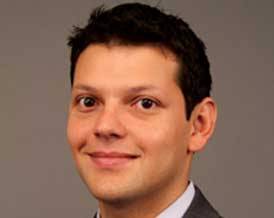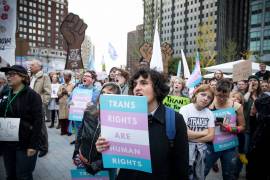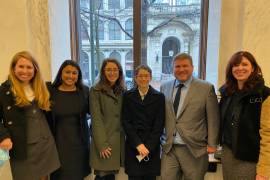
Divide and Conquer: How the Exclusion of LGBT Latinos Weakens Our Community
Blog Search
This article first appeared in the New York City-based, Spanish-language daily El Diario.
I came to this country from Costa Rica when I was nine years old to be reunited with my family. I know firsthand the importance of immigration protections: It is how many people in my own neighborhood, my own block and my own family have been reunited. But as a gay man, I worry that large segments of our community are in danger of being left behind if immigration reform is not LGBT-inclusive.
In an attempt to use our community as a political wedge, some members of Congress have already declared that comprehensive immigration reform cannot move forward if it includes equal protection for LGBT people. This divide-and-conquer strategy assumes that immigrants, particularly Latinos, will be complicit in discrimination because they are more likely to be homophobic. These politicians fail to appreciate that our community—like everyone else in the U.S.—continues to evolve on issues of LGBT equality. In fact, there is widespread support for LGBT equality among Latinos: According to a recent report from the Movement Advancement Project, 80% of Latinos believe that LGBT people often face discrimination, 83% support housing and employment nondiscrimination protections for LGBT people, and 75% support school policies to prevent harassment and bullying of LGBT students and those perceived to be LGBT.
LGBT couples and their families are an increasingly visible part of the Latino community. We live in the same neighborhoods and send our children to the same schools. Family ties and bonds are important to LGBT Latinos, and we are committed to raising our children in nurturing, loving, and stable homes. U.S. Census data shows that Latino gay couples are twice as likely as whites to be raising children. In fact, 54% of Latina lesbian couples and 41% of Latino gay couples are raising children. These patterns demonstrate that family and parenting are equally important for all Latinos regardless of sexual orientation, and reflect the demographic and social trends of the larger Latino community. Not surprisingly, all of us have a stake in immigration reform that unites and strengthens families.
As immigrants, many Latinos know well that loss of family unity is too often the cost of migration and our search for opportunity, freedom from political violence and persecution. We also know that, at their best, immigration protections have a powerful healing potential: Many of us have seen firsthand parents reunited with children they were forced to leave behind, and spouses brought together after many years apart. Family unity engenders support networks that enable our community to thrive. Our entire community is enhanced with each united family, regardless of the sexual orientation or gender identity of any of its members.
As a gay man, I am denied the right to bring or sponsor a foreign-born spouse to this country, even if we are legally married and raising children together. I cannot exercise the same rights my parents did when they reunited our family and brought me to this country. This is unjust, discriminatory and wrong. Immigration reform must fix this problem.
We should ensure that we use our political power to protect our entire community. Any plan that is not inclusive of LGBT couples and families threatens to weaken, undermine, and divide us. We should reject immigration proposals that do not encompass all of our families. As we seek equality and recognition, no family—regardless of the sexual orientation of any of its members—should be left behind or sacrificed. As a community that has fought so hard for visibility and recognition, let’s not condemn our LGBT brothers and sisters to the shadows.




